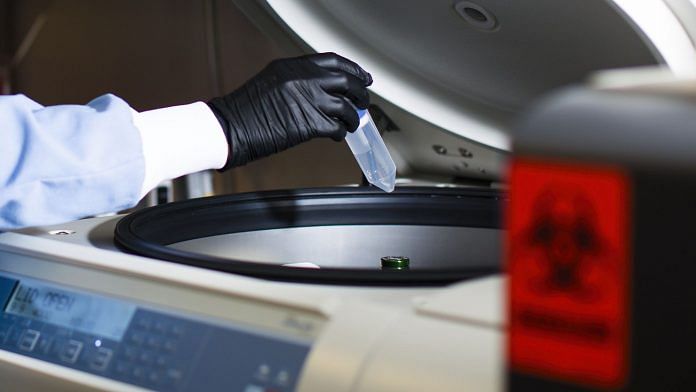The renowned economist Erik Brynjolfsson recently asked: “At least so far, I haven’t seen any one suggesting to use the market system to allocate vaccines. Not even those who strongly advocate it in other areas. Why is that?”
As one of several people copied at the bottom of the tweet, I feel compelled to take up the challenge.
The most obvious point is that a vaccine should first go to health-care workers and others in critical jobs, rather than to those who would pay the most for it. So government action will most likely be necessary to do that. Still, I see considerable use for markets in allocating vaccines — at some margins.
One striking feature of the current vaccine landscape is how many candidates there are, sometimes based on different scientific approaches. That is promising, but it means multiple vaccines could be circulating at the same time. Those vaccines could offer varying degrees of protection and risk.
If you had to choose among those vaccines, wouldn’t it make sense to look for guidance from market prices? They will reflect information about the perceived value of both protection and risk. On the same principle, if you need brain surgery, you would certainly want to know what the brain surgeon charges, although of course that should not be the only factor in your decision.
You might think that you should ignore market information and simply listen to the WHO and CDC. This argument was easier to make before the pandemic, but now those institutions have made several mistakes in communicating scientific information, such as initially underplaying the risks of Covid-19 and later overplaying skepticism about masks. It is not obvious that they should be the sole sources of information.
So how might we get market prices for those vaccines? To repeat: The government should allocate a large share of the vaccines to those working on the front lines. But the U.S. government has performed poorly in procuring tests and masks. What reason is there to fully rely on it for vaccines, a far more vital need?
So it is possible to imagine some of the new vaccine products being sold at market prices, subject to additional regulation where needed. The market prices for vaccines could be useful for other purposes as well. If scientific resources need to be allocated to improve vaccines or particular vaccine approaches, for instance, market prices might be useful signals.
Note also that the scope of the market might expand over time. In the early days of vaccine distribution, health-care workers will be a priority. Eventually, however, most of them will have access to vaccines. Selling off remaining vaccine doses might do more to encourage additional production than would bureaucratic allocation at a lower price.
The market can also help differentiate among vaccines. For example, some may not scale, perhaps because of their costly storage and transport requirements. Nevertheless, it might do the world good if one or two of those vaccines were available as luxury goods, sold on active markets to wealthy individuals. Making it easier for the wealthy to travel safely can boost trade and investment and revitalize business confidence. Rich people might also buy doses for their favorite scientists or even entertainers, so there could be a benefit to society at large. And early experience with limited sales may offer lessons in how to make these vaccines more scalable.
As a purely technical matter, you might be afraid that pure price discrimination will allocate all of the benefits of the vaccine to the sellers. But there is little danger of that outcome, since each person getting a vaccine confers significant benefits on others, through a reduced risk of infection. And if you are worried that poorer people won’t be able to afford the vaccine, give them vouchers or other forms of aid.
Finally, from a purely American standpoint, there is no guarantee that the U.S. will win the race to produce vaccines. Many of the current Chinese efforts, for instance, are based on older vaccine ideas, and might be ready fairly quickly, even though they provide only partial protection. Americans may not be first in line to receive Chinese vaccines, at least not through normal bureaucratic channels.
Would it then be so bad if, in the early days, wealthy Americans and others had the option of flying to China, or some intermediary country, and buying access to those vaccines at market prices? It is not hard to imagine a $30,000 vaccine vacation to Singapore or Vietnam. Markets in such places could encourage more production of a vaccine that would then be available to poorer people elsewhere in the world.
It is easy to make the first-order argument against allowing markets to allocate access, especially initially, to vaccines. But on a closer look, even when the product is a vaccine, the traditional virtues of markets still can serve some useful purposes. – Bloomberg
Also read: There will be more than one coronavirus vaccine, and that will be a merry situation



